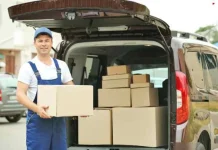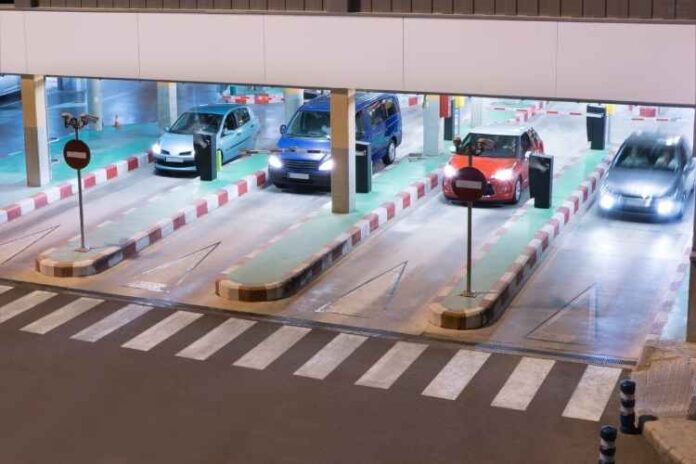Driving yourself to the Philadelphia International Airport when you have a flight out means that you need to think ahead about parking. You need to park in a location that’s secure so you don’t have to worry about how safe your vehicle is while you’re gone.
There are several things to consider when you’re trying to find an airport parking lot. One important note is that you shouldn’t limit your search to only the ones that are controlled by the airlines. Instead, take a look beyond those lots.
Weigh the Price Against the Benefits
You need to look at the cost of parking at a specific lot and determine if that cost is worth the benefits of parking there. There are a few important benefits that you need to look for that can help you and your vehicle to remain safe.
- Well lit
- Around-the-clock staffing
- Secure fence with limited entrances
- Shuttle to and from the airport with luggage assistance
- Emergency assistance, such as battery jump starts or help with frozen locks
Because it snows in Philadelphia, you need to ensure that the lot you choose will have snow removal if you’re traveling during the winter months. Some lots also offer snow removal for the vehicles so you won’t have to worry about that before you drive off after you make it back to Philadelphia.
Make a Reservation
Many lots offer reservations for parking so you know that you’ll have a spot when you get to the airport. This is typically done online, and it can sometimes get you a discount on the parking. Be sure to double-check the dates so you can ensure that your car will remain safe the entire time you’re gone.
Check for Loyalty Rewards
Some airport parking lots have loyalty rewards programs. These Philadelphia frequent flyer programs are ideal for people who travel often because they can earn points to put toward free parking on a trip. Many of these programs require you to sign up ahead of time so be sure that you get this done before you leave for the airport. Be sure to read the terms for the program because you may have to make reservations online with your loyalty reward account.
Enjoy Your Travels
Once you have your vehicle safely parked in a secured lot, you can focus on getting into the airport safely. After you make it through TSA at Philadelphia International Airport and get into the airport, you can focus on enjoying your trip.
Protect the Body’s Endurance Energy Always Sturdy When Traveling
Carrying out a long-distance expedition can be a particular challenge in the midst of the COVID-19 pandemic. Not only is there a high risk of being in a crowd, traveling expeditions do require more energy than simply carrying out daily activities.
Therefore, you and your family need to protect your immune system optimally to avoid various health problems, such as diarrhea or inflammation of the Corona virus, which can occur during long trips.
Methods of Protecting the Body’s Endurance Energy Always Sturdy When Traveling
There are several things you can do to keep the immune system strong, including:
1. Eat nutritious food
Before traveling, you and your family need to consume healthy, nutritious foods in an orderly manner. In addition to making the body more energetic during traveling, consuming nutritious food also means trying to strengthen the body’s energy to fight inflammation.
Some of the types of nutrients that you need to get enough of are protein, carbohydrates, fiber, vitamins, and minerals. You can get these nutrients from various types of nutritious food, ranging from fruit, vegetables, meat, fish, eggs, to nuts.
In addition, during the trip, you should also avoid consuming any food or drink. To be more secure and nutritional content, you can bring your own lunch from home to eat sahur or break the fast.
2. Drink more water
When traveling, you may try to avoid drinking a lot because you are worried about frequent urination during the trip. Meanwhile, if fluid needs are not met, you can easily feel tired, sleepy, and run out of concentration.
This situation can certainly endanger the safety of you and your family, especially if you use an individual vehicle to carry out traveling expeditions.
Therefore, you need to meet the body’s fluid needs by drinking at least 8 glasses of water every day. In addition to water, other healthy drinks, such as fruit juice, can also help meet the consumption of fluids as well as important nutrients for the body while traveling.
3. Exercise regularly
So that the body is always fit until the day of the traveling expedition comes, you and your family are also advised to exercise regularly every day. Not only that, exercise can also strengthen the body’s immune system to fight disease-causing inflammation and avoid aches when traveling.
Try to set aside 30 minutes each day or 150 minutes each week for exercise. Types of exercise that can be tried include relaxing paths, jogging, yoga, or cycling.
4. Adequate sleep and rest
How to keep the immune system strong while traveling what you also need to do is sleep or rest enough, especially before going on a trip.
With adequate sleep time, you and your family will not be susceptible to disease during traveling. Not only that, the risk of a disaster due to driving in a sleepy and tired state due to lack of sleep can also be avoided.
5. Manage stress
One of the distinctive characteristics of traveling expeditions, for example traveling for Eid, is heavy traffic and long traffic jams. This condition often makes you stressed and irritable, which is one of the reasons for the decrease in endurance.
In order for the immune system to stay strong while traveling, you need to manage mental stress well. Try to relieve stress during the trip by listening to music or practicing relaxation methods to calm your feelings.
6. Practice health protocols
You also need to follow health protocols when traveling in the midst of the COVID-19 pandemic. This means that you and your family are always protected from the threat of infection with the Corona virus or other germs and viruses.
Always wear a mask, maintain a comfortable distance, stay away from crowds, and actively wash your hands using running water and soap or use hand sanitizer throughout the expedition.






















